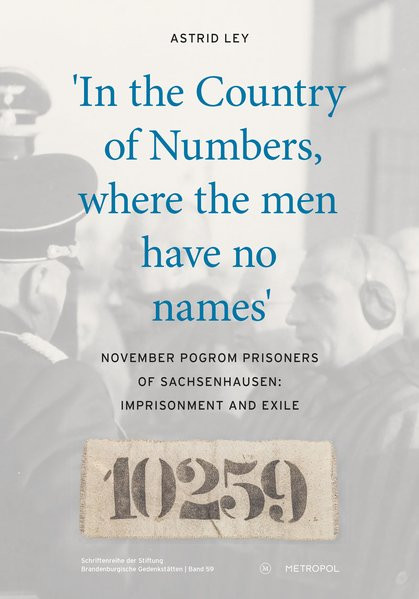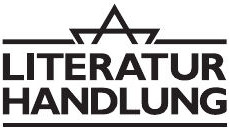“In the Country of Numbers, where the men have no names”
November Pogrom prisoners of Sachsenhausen: Imprisonment and exile
- Autor: Ley, Astrid
- Erscheinungsjahr: 2020
- Seiten: 184
- Bindung: gb
of them, therefore, survived. How were the lives of these families affected by the forced emigration? What was waiting for them in the countries where they took refuge? Did they find a new home?
The exhibition catalogue looks at these questions from the perspective of the children and grandchildren of the imprisoned men.
This book tells the story with the example of nine individual life stories. The families who contributed to the exhibition with photos and documents, and were willing to speak on camera about their memories are living in the USA, the UK, Canada, Israel, Argentina and Australia today.
Herstellerinformationen:
Die Herstellerinformationen sind derzeit nicht verfügbar. Wir arbeiten daran, diese in Kürze bereitzustellen. Bitte schauen Sie später noch einmal nach, um sich über etwaige Aktualisierungen zu informieren.
Verantwortliche Person für die EU
Die Informationen zur verantwortlichen Person für die EU, dem in der EU ansässigen Wirtschaftsbeteiligten, der sicherstellt, dass das Produkt den erforderlichen Vorschriften entspricht, sind derzeit nicht verfügbar. Wir arbeiten daran, diese in Kürze bereitzustellen. Bitte schauen Sie später noch einmal nach, um sich über etwaige Aktualisierungen zu informieren.
Produktsicherheitsinformationen
Sie finden den für das Produkt verantwortlichen Wirtschaftsakteur auf dem jeweiligen Produkt selbst, auf dessen Verpackung oder in einer dem Produkt beigefügten Unterlage. Diese Information ist in der Regel gut sichtbar angebracht, um Ihnen eine einfache Identifikation des Verantwortlichen zu ermöglichen.
